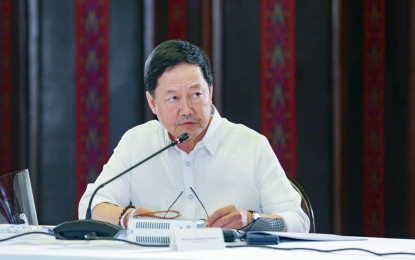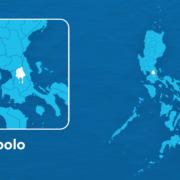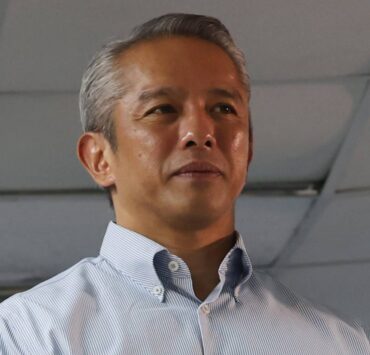Solgen looking into Chinese-acquired properties

The Office of the Solicitor General (OSG) on Tuesday said it would immediately review the documents provided by the House quad committee for possible legal action against Chinese nationals accused of fraudulently acquiring properties in the Philippines.
After reviewing the files, Solicitor General Menardo Guevarra told reporters that the OSG would then coordinate with other government agencies to gather additional evidence and build the cases.
“Once we have gathered sufficient evidence, we’ll commence the appropriate legal actions, which may include civil forfeiture, reversion, escheat, cancellation of birth certificates, deportation, and criminal/administrative complaints,” he said.
Civil forfeiture, which is governed by the Anti-Money Laundering Act of 2001, allows the government to take money or property tied to illegal activity, without needing a criminal conviction.
Reversion refers to the return of illegally acquired property to the state, while escheat transfers property to the government when there are no heirs or the property is abandoned.
Constitutional violation
On Monday, the quad committee turned over documents to the OSG concerning land acquisitions and properties believed to have been “owned, procured, [and] acquired” by Chinese nationals in violation of the Constitution.
The document turnover is part of a broader investigation into illegal Philippine offshore gaming operators (Pogos), the drug trade, land grabbing by Chinese nationals, and extrajudicial killings tied to the Duterte administration’s brutal drug war.
Rep. Robert Ace Barbers, together with Representatives Dan Fernandez, Joseph Stephen Paduano and Benny Abante, gave the documents to Assistant Solicitors General Hermes Ocampo and Gilbert Medrano, along with Senior State Solicitor Neil Lorenzo.
Lawmakers advised the OSG to collaborate with the Land Registration Authority, Securities and Exchange Commission, Philippine Statistics Authority, Department of Agrarian Reform, Bureau of Internal Revenue, and the Department of Justice to ensure a thorough investigation and legal enforcement.
Barbers disclosed that during the investigation by the House committees on public accounts and dangerous drugs, they discovered that several Chinese individuals had acquired “thousands of hectares” of land in Pampanga province.
“They used fake and spurious documents to prove they are Filipino until we discovered they were Chinese nationals,” Barbers noted.
Fake Philippine citizenship
Lawmakers identified two key figures in the case: Chinese nationals Aedi Tai Yang and Willie Ong, who are implicated in questionable land transactions with the local government of Mexico, Pampanga.
Yang is suspected of falsifying documents to obtain Philippine citizenship, allegedly using this to bypass foreign ownership laws, acquire land, and establish businesses illegally.
Meanwhile, Ong reportedly held as many as 300 land titles under his name without undergoing the required conversion process, according to Barbers, who cited the agrarian reform department’s confirmation.
Lawmakers warned that failure to address these alleged violations “could have dire consequences for national security and the economy.”
The Philippine Constitution prohibits foreign ownership of land with Article XII, Section 2 stating that only Filipino citizens or corporations that are at least 60-percent Filipino-owned may own land.
Foreign ownership of businesses is also limited to 40 percent, which means that a foreign national or corporation can own up to 40 percent of a business, while at least 60 percent must be owned by Filipino citizens or entities.

















